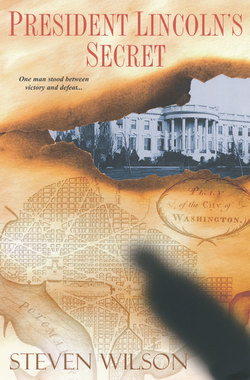Читать книгу President Lincoln's Secret - Steven Wilson - Страница 17
На сайте Литреса книга снята с продажи.
Chapter 9
ОглавлениеThe American Consul’s Office
Quebec City, British Canada
Tooke introduced Fitz to Abel Chamberlain, the American Consul to British Canada. The harried man spoke a few words of greeting to Fitz, drew Tooke into his office for an extended visit, and left Fitz to his own devices in an anteroom. A young man, a secretary of sorts, felt sympathy for the stranded officer.
“They might be a while,” the man said. “Mr. Chamberlain is particularly vexed today.”
Fitz, irritated at being abandoned and tired of trying to find a position where his arm didn’t hurt, said, “Why is today different from any other day?”
“The British are landing more troops. Can I get you a refreshment?”
Fitz remembered the company of soldiers forming ranks in the train station, a swath of bright red against the dull bodies of the train cars—greatcoats, packs, blanket rolls, white leather belts and harnesses—these men had come to stay. “How many troops?” he asked.
“Five to ten thousand. Relations are very strained, you know. We’ve all been given orders not to antagonize the British in any way.”
“Oh, good,” Fitz said. “I am particularly adept at not antagonizing people or foreign governments.” The secretary, catching his caustic tone, offered a polite smile and disappeared behind a desk covered with papers.
Tooke retrieved Fitz, led him to an unimposing office near a set of stairs, and sent for coffee.
“Mr. Chamberlain is distressed,” Tooke said as he hung up their garments and slid behind his desk.
“The British army.” Fitz supplied the reason for the counsel’s fear. He didn’t realize how tired he was from the trip. Or maybe it was his concern for Asia, or the fact that he seemed never to have been without this wound. He knew he needed rest—four hours of good, deep sleep would refresh him.
“How did you know?”
“The young man told me. And I saw a company in the station. He has every right to be frightened. The British army has a habit of treating its rivals badly. I’m sure there’s a fair amount of diplomatic square dancing going on, trying to keep the two nations from coming to blows.”
“Yes,” Tooke said. “Mr. Chamberlain was insistent that we do nothing to jeopardize the fragile relationship between the American government and Her Majesty’s government.”
“Mr. Tooke,” Fitz said, feeling a bit devilish, “I am the soul of propriety. You were about to tell me about the Southern agents in the city.”
Tooke recalled the conversation in the carriage. “Oh, my, yes. We know of three—Sorrel, Provine, and Locker. They have never been active. A common rumor is Provine prefers the company of society to the intrigues of conspiracies. I’ve never met the man.”
“Those three? No one else?”
“None have caught our attention. Of course there is always talk. Most natives up here, French and English, detest Lincoln and distrust the North. It’s fashionable to make demonstrations on behalf of the South.”
“Demonstrations?”
“Parties celebrating Southern victories, dinners with mock Southern regalia decorating the dining room. The Januarys dedicated a performance to the brave men of the South. Their Southern antecedents are well known. Maryland, I believe.”
“Has Abbott ever been seen in the company of these people?” Fitz asked.
“Not to my knowledge.”
A knock on the door interrupted them, and a clerk appeared.
“Colonel Dunaway?” He handed Fitz a telegram.
Fitz read it, and then handed it to Tooke. “It’s from the War Department. They are absolutely certain Abbott crossed the border several weeks ago, heading for Quebec City.” Another clerk delivered two cups of coffee. “Well,” Fitz said, after taking a sip of the brew. “It appears he is here, and we are here, so now it is simply a matter of finding him.” The coffee was bitter but Fitz was glad for its warmth. He watched the steam rise from the black liquid. “But why would the man come to Quebec City? You said he’s been here before?”
Tooke said, trying to be helpful. “Several times I understand. Let me ask about.”
“All right,” Fitz said. “It’s in our best interest to proceed as if Abbott will be, or already is, in the hands of Southern agents. In any case, he came willingly or by coercion. It’s down to cases, and ours is simple; find and return the good professor to the United States.”
